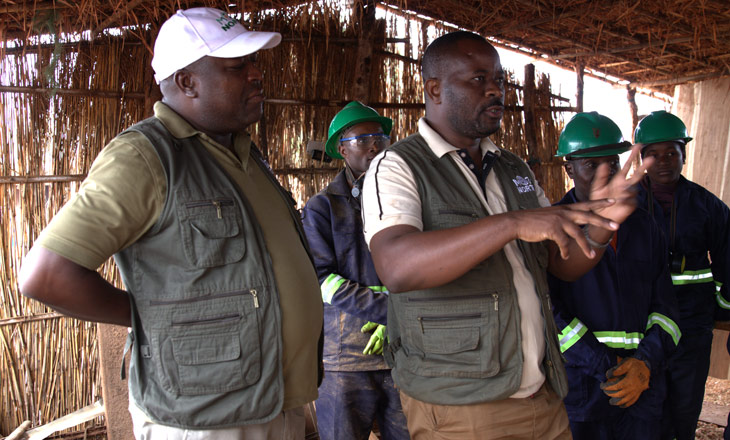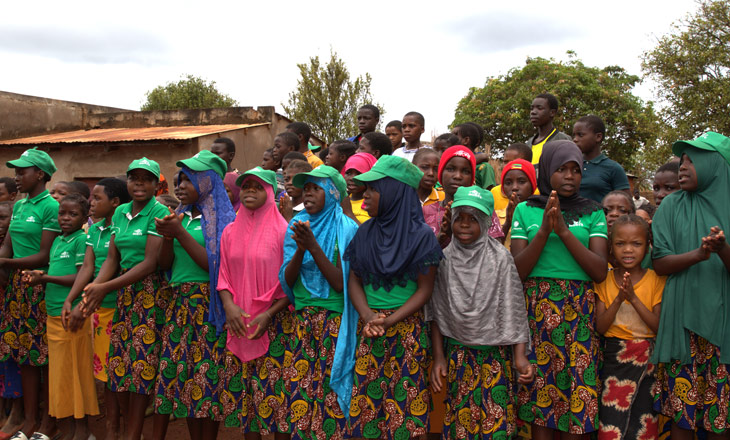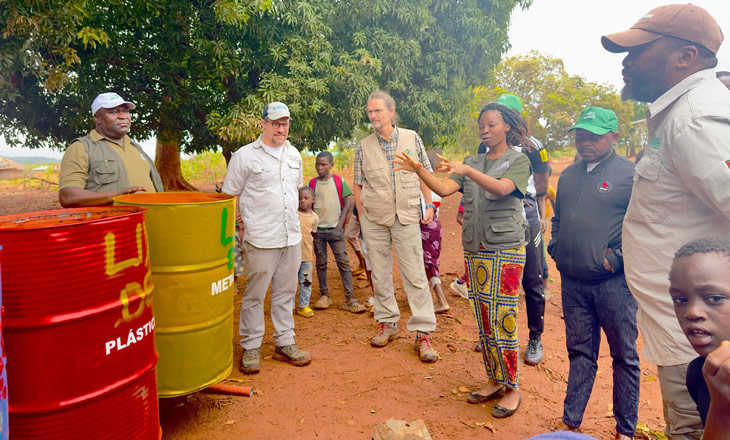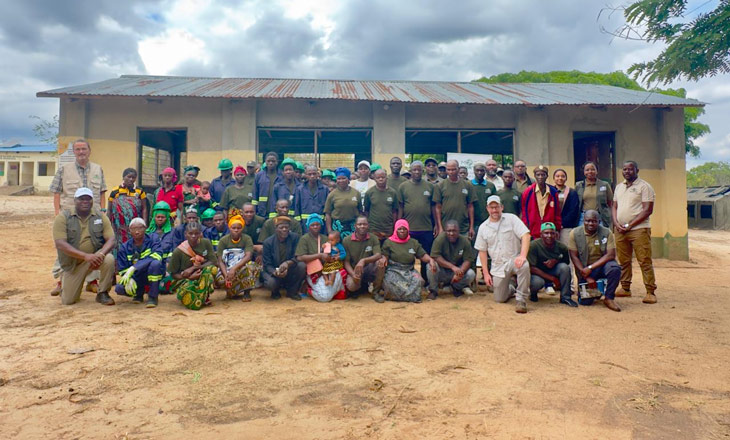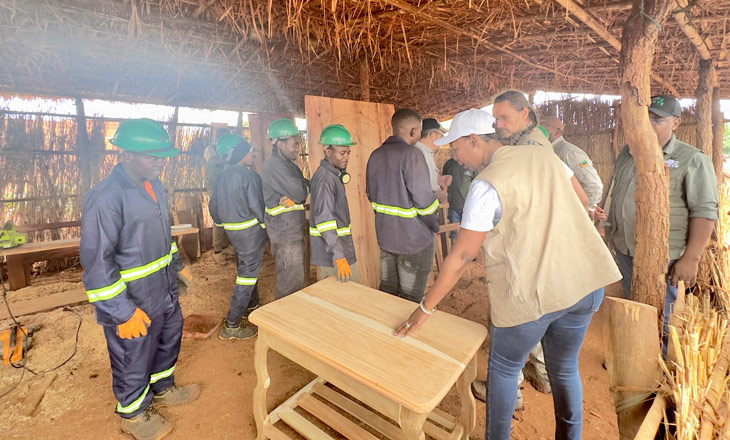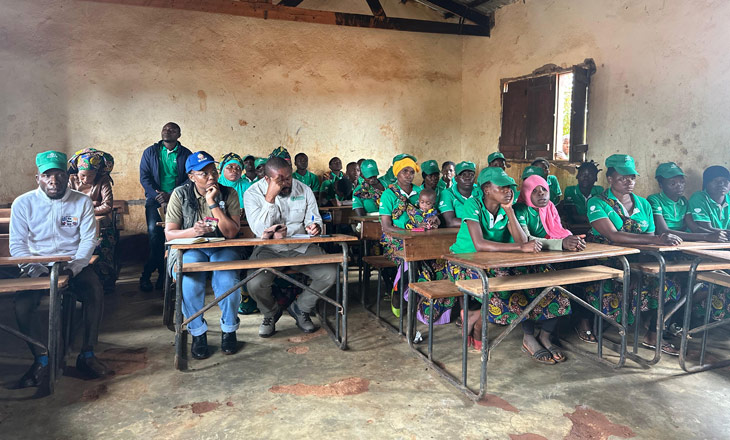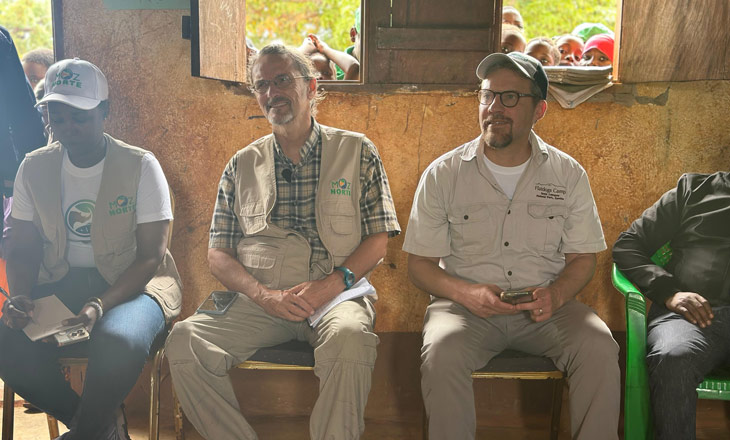Between 03 and 14 November, a supervision and monitoring mission of the Northern Mozambique Rural Resilience Project (MozNorte) took place, with the objective of assessing the progress of the activities implemented, ensuring compliance with work plans, and strengthening coordination among the partners involved in its execution. The mission included the participation of representatives from the World Bank, the Ministry of Agriculture, Environment and Fisheries (MAAP), the National Sustainable Development Fund (FNDS), the Blue Economy Development Fund–FP (ProAzul), the United Nations Office for Project Services (UNOPS), the National Administration of Conservation Areas (ANAC) and the Foundation for the Conservation of Biodiversity (BIOFUND), who throughout two phases closely followed the evolution of the initiatives developed under the project.
Published at 17/11/2025
Multisectoral team assesses impacts of the MozNorte Project between 3 and 14 November
In this first phase, carried out between 03 and 07 November, the teams presented the set of interventions carried out since the last mission in May of the current year, allowing a detailed analysis of the progress recorded in the components related to improving the management of targeted Conservation Areas, community governance, institutional capacity-building, and strengthening mechanisms for natural resource management. Progress was also discussed in the actions for mitigating and responding to human–wildlife conflict and in the preparation of land-use management instruments. This phase made it possible to identify consistent improvements in community organisation, the involvement of local leadership, and the consolidation of structures that support the implementation of activities on the ground, also highlighting the need to accelerate the finalisation of some essential technical instruments.
The second phase of the mission corresponded to the field visit carried out on 12 November, in Niassa province, Sanga district, where teams from the World Bank, BIOFUND, ANAC, and Helvetas Mozambique, the project’s implementing partner in Chipanje Chetu, were present. The visit to the communities of Macaloge, Maumbica and Nova Madeira enabled the direct observation of the impact of the project’s actions and the collection of perceptions from families, local committees and beneficiaries of the different initiatives.
In Macaloge, the vocational training programme in carpentry was visited, which functions as a true incubator of technical skills. Five (05) young apprentices, many of them with no prior experience, benefit from six months of supervised practical training, with recognised certification and preparation to receive tools and initial equipment for generating self-employment. The beneficiaries demonstrated the transformation brought about by the training, not only in creating self-employment opportunities but also in valuing local work and improving the quality of services available in the community.
In Maumbica, the mission followed the work developed in the context of environmental education at the Primary School, where environmental clubs, girls’ clubs, and an organised system of assistant teachers and mentors promote awareness-raising, conservation and environmental citizenship activities with children. The initiatives include practical classes in environmental workshops, singing, dancing, specific sessions for girls on topics related to sexual and reproductive health, hygiene, early unions, school dropout, and support for students continuing their secondary studies through boarding assistance. The visit highlighted the role of this component in shaping future community leaders and creating a solid base of local knowledge on the importance of conservation.
In the Nova Madeira community, the team met with the COGECO, natural resource management committees, and community rangers, who presented the results achieved in managing concession and trophy fees and promoting participatory and transparent management. The mission also had the opportunity to learn about livelihood diversification projects, particularly the fish farming initiative. A fishpond built in June received around 2,000 fingerlings, which are expected to become an important source of food and income for local families, strengthening food security and the community’s economic resilience.
The mission made it possible to record solid progress in the implementation of the MozNorte Project, revealing growing community ownership, greater local organisation, and clear improvements in how communities understand and manage the natural resources that sustain them. The partners reaffirmed their commitment to continuing to support institutional strengthening, the generation of sustainable incomes, and the promotion of an integrated approach between conservation and socioeconomic development, contributing to building more resilient communities in Niassa.

